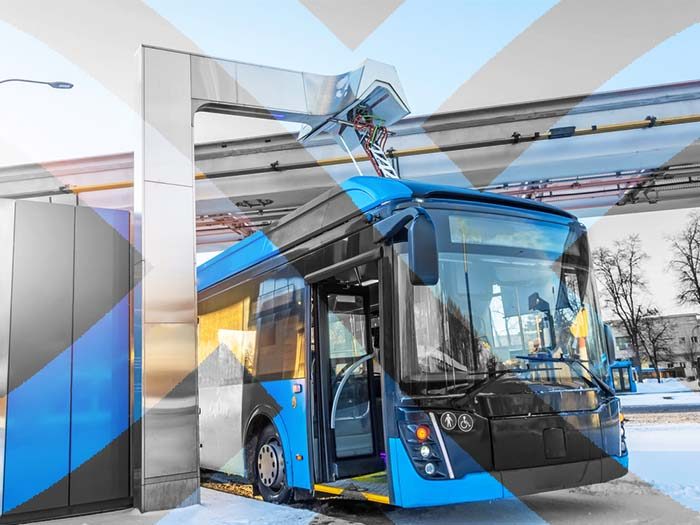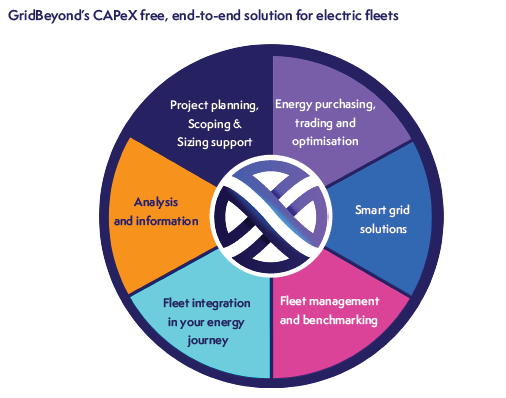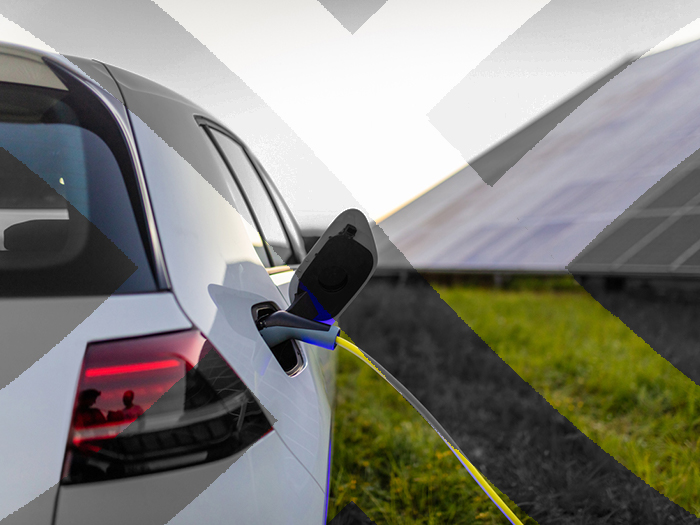Insights
better business decisions
Posted 3 years ago | 6 minute read

EV Fleets | Smart or managed charging?
Transport permeates almost every business sector in one way of another and for any business, an efficient transport component is not just a way to optimise costs but is often a matter of survival. But the transport industry is changing as electric vehicles (EVs) move from consumer vehicles to the commercial sphere at an increasing pace.
EV adoption is an important part of the transition to a low-carbon energy future, but rapid EV uptake will create challenges for the grid. The shift to EVs bring numerous benefits and opportunities for businesses to optimise energy strategies while supporting the integration of renewable energy into the grid.
In addition to being a more sustainable option at a time when employees and supply chains are demanding action on the environment, EV fleets can provide cost reductions over the lifetime of their ownership. With lower overall running costs, an increasing number of tax benefits, and grants, the savings compared to traditional vehicles soon add up. But in addition to these benefits there are revenues to be made through providing services to the grid. The specific characteristics of EVs mean that they have potential to provide balancing and demand response services.
When it comes to fleet charging there is a choice between smart or managed charging technology. But what’s the difference and how does it impact your costs and operations?
Charging becomes operational process
Falling costs, widening availability, and support from policymakers, have spurred a recent rise in sales of electric vehicles (EVs). But as EVs become more common, electricity demand will inevitably rise. This will create new opportunities for commercial EV fleets. But shifting to an EV fleet is about much more than purchasing new vehicles. Electrification typically requires a rethink of the whole operation. This includes procurement, charging, maintenance, and optimisation. Ultimately, it could help turn what is currently a cost centre – refuelling – into a potential revenue stream through optimisation of electricity use.
With fuelled vehicles, the refuelling process is quick and simple, but charging a modern electric car takes much longer. This means its critical to plan the workload of EVs and their charging schedule. To ensure the fleet’s full functioning, it’s necessary to constantly collect and analyse data on the battery charge status of the entire EVs fleet to make the optimal charging schedule.
In addition, organisations with large EV fleets are going to look how to charge them at the most optimal time. That will be when the price of electricity is at its lowest, which is typically overnight. But if millions of EVs are charging at the same time, electricity will become more expensive so it’s important to understand the dynamics of energy markets and have a forecasting solution to keep your costs as low as possible.
It is also important to ensure your grid connection can provide the necessary capacity at your location. If the network operator needs to upgrade the power connection, they can demand a surcharge from companies. In addition, contracts must allow, or be upgraded to allow, the required connection capacity, which in turn has associated costs.
What is smart charging?
Transitioning your fleet to battery-electric technology introduces a new set of challenges that go well beyond the vehicles.
In essence, smart EV charging refers to a system where an EV and a charging device share a data connection, and the charging device shares a data connection with a charging operator, enabling passive visibility to the data. This can provide information on the cost a fleet is paying for electricity, the amount of energy being consumed, or vehicles’ current state of charge. But it does not allow fleets to act on that data to fully optimise their fleets.
As a result, fleet or energy managers are unable to manage their energy costs and usage without constant monitoring, manually updating schedules, and resorting to continual hands-on action. This means that fleets are often left to charge during peak price periods. But with a managed charging solution, scaling your fleet for continued growth doesn’t have to cost a fortune, and neither does your electricity costs.
Managed charging | The cost saving difference
While managed charging certainly incorporates the simple functionality of smart charging, it goes beyond to provide real value to EV fleet operators.
Intelligent charge management systems, such as the AI-powered solution provided by GridBeyond https://amplypower.com/omega-charge-management/, feature cloud-based technology and onsite hardware. This allows charging operations to be automated and optimised — as the software can navigate electricity costs that fluctuate on an hourly basis and orchestrate charging sessions to ensure vehicles are charged with low-cost energy and ready when needed. Managed charging gives fleets access to price optimisation, without the business ever needing to monitor the price volatility of electricity or perform hands-on operations.
While one of the limitations to EV fleet expansion is the potential need to increase your maximum import capacity, managed charging also provides a solution to this. Fleet customers can avoid lengthy and costly service upgrades by taking advantage of adaptive load management tools. This means site and charger load profiles are monitored, managing a fleet’s chargers and charge sessions to avoid service upgrades. This is all done by ensuring the maximum power threshold is never surpassed by automatically dimming and turning off chargers at strategic intervals — while still making sure your fleet is charged for when you need it adding certainty to a fleet’s charging operations.
Choosing an EV optimisation partner
Transitioning your fleet introduces a new set of challenges that go well beyond the vehicles. To fully capture the opportunities in the EV fleet-charging market your business needs access to price signals from the energy market to enable real-time decision-making and an intelligent management system to optimise charging in alignment with demand, power prices, traffic conditions, and charging-station availability.
When choosing an IoT platform, look for something that’s versatile and hardware-agnostic. If you plan to use hardware from different manufacturers or your fleet consists of cars of different brands, choose an IoT platform independent of the hardware manufacturer. This can give you more freedom in selecting sensors based on your objectives, preferences and budget.
Customers using GridBeyond’s managed charging platform also gain access to two additional key features.
As more fleets look to build resilience measures into their operations, they can rest easy knowing any distributed energy resource can be seamlessly integrated alongside their EV fleet and benefit from the same functionality. In some cases, GridBeyond can also support or finance the installation of generation or storage technologies on your site and optimise these alongside your site load and EV fleet requirements. GridBeyond’s platform also tracks and exports data necessary for environmental commodity and compliance reporting programs — preventing fleet operators from having to manually collect and compile data.

GridBeyond is helping businesses across the UK, US and Ireland make the switch to EVs. Our end-to-end service gives businesses a clear roadmap to cleaner fleets and lower emissions. If you are considering the switch to EVs, find out how we can help you on your journey.

Revving up the Grid | Opportunities for EV Fleet Owners
Transitioning your fleet to battery-electric technology introduces a new set of challenges that go well beyond the vehicles.
Learn more





